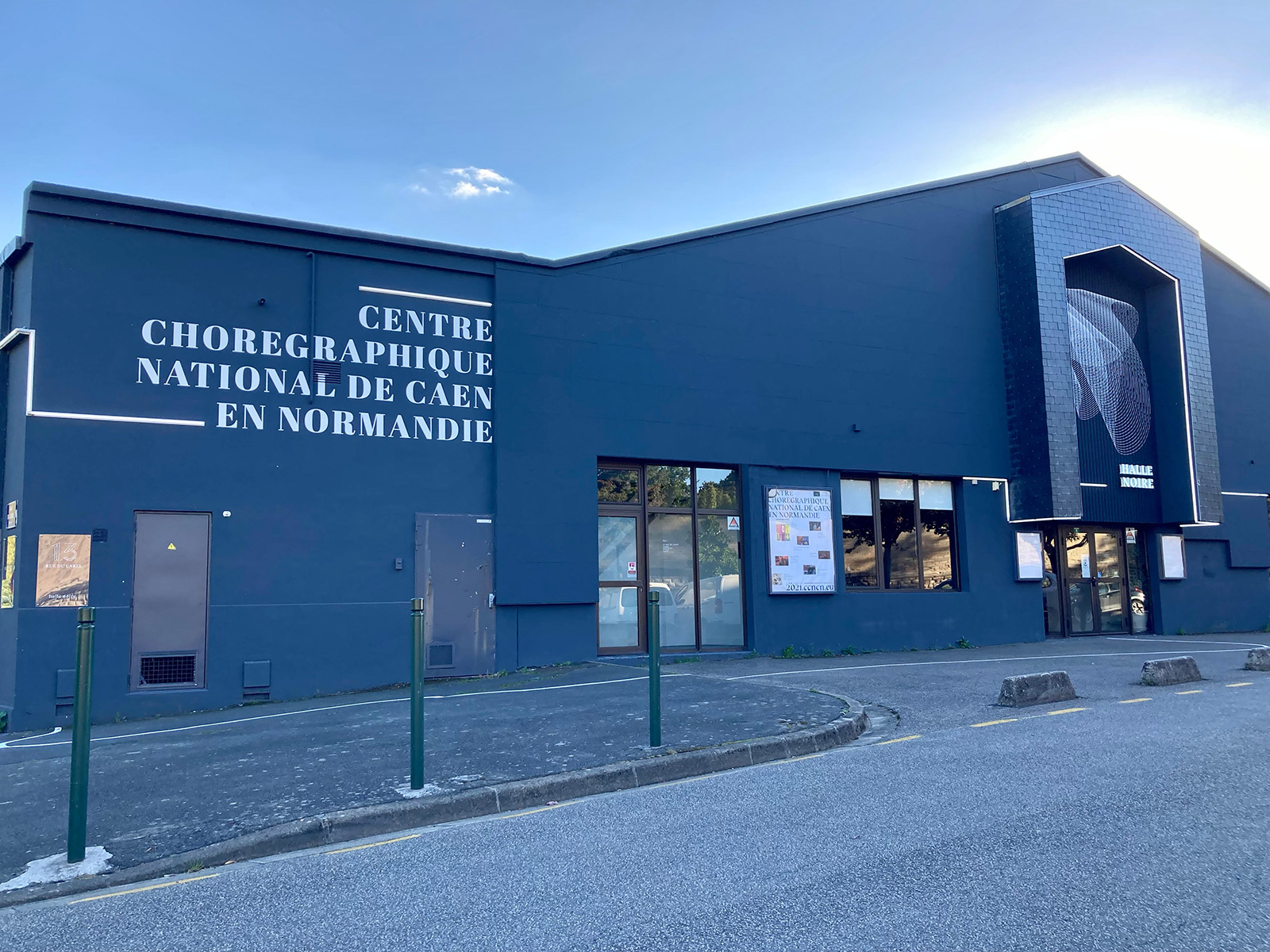Centre chorégraphique national de Caen en Normandie

Direction Alban Richard
In addition to studying literature and music, Alban Richard also pursued dance, ultimately choosing it as his career path, after working with choreographers such as Odile Duboc and Rosalind Crips.
In 2000, he founded the L’Abrupt company to develop his own creations, inventing new bodies living in close interaction with music, usually during live performances. Born in Brest and serving as the director of the CCN de Caen en Normandie since 2005, Richard brings a sensitivity to music into his work, while opening doors to other avenues of research. Beyond supporting choreographic artists, he also assists text artists through writers’ grants, awarded to authors who explore society. This approach is at the heart of the CCN’s project. Through its actions, it creates temporary communities that gather for both short and long periods of time, and experiments with several types of practices. Within this framework, the CCN is committed to promoting health-related topics, thus organising the “Créer les conditions de sa santé” forum (Take your health into your own hand, in English), in collaboration with the Centre national de la danse. Along with its very regional focus, the CCN has been increasing dance-related awareness, with the “créations habitant·e·s” (inhabitants creations). These shows include works from the “collection tout-terrain” (all-terrain collection), created by choreographers who can produce short and technically light pieces. The objective of this local project extends beyond the national borders: since 2017, it includes creators from Lithuania’s choreographic landscape.

The venue
In 1984, Quentin Rouillier and his Caen-based company, Moebius Danse, joined the CCN’s network, alongside 11 other choreographers across France, such as Dominique Bagouet in Montpellier and Jean-Claude Gallota in Grenoble. A former bus depot, rehabilitated as a sports centre by the city, became the new headquarters of the CCN. Unlike other organisations with long-term management, the CCN de Caen governance has been shared among four different teams over the past 40 years. In 1988, Karine Saporta, an icon of the “new French dance”, succeeded Quentin Rouillier. Saporta then brought all CCN’s directors together in Caen for the “first national gathering”, an initiative aiming to discuss changes in their missions as well as their implementation, and establish a structure that would represent all centres: the ACCN.
In 2004, Héla Fattoumi and Éric Lamoureux took over as directors, welcoming writings from Africa and Asia. Together, they initiated a project for a new venue, while rehabilitating the 200 m2 “halle noir” into a performance space in the meantime.
Alban Richard, appointed director in 2015, inherited this relocation project, though it was never carried out. Local authorities are now considering moving the Centre elsewhere. In 2025, new management will take over from Alban Richard and Catherine Meneret, who, after three terms, succeeded in anchoring the CCN in the region and representing society.
Press & Media
Key dates
-
1977
Quentin Rouillier founds Moebius Danse.
-
1984
The Moebius company becomes the CCN de Caen, Basse-Normandie alongside the first 12 CCNs.
-
1988
Quentin Rouillier serves as director
-
1988-2004
Karine Saporta serves as director
-
1995
Karine Saporta organises the “first national gathering” of CCN directors in Caen to establish a structure representing all centres: the ACCN.
-
1998
Partial rehabilitation of the building.
-
2004-2015
Héla Fattoumi Éric Lamoureux serve as directors and found the Danse d’ailleurs festival focused on African and Asian writings.
-
2005
Partial rehabilitation of the building to host shows.
-
2015
The CCN Caen/Basse-Normandie is renamed Centre chorégraphique national de Caen en Normandie (National Choreographic Centre of Caen in Normandy).
-
2015-2025
Alban Richard is currently serving as director, together with co-director Catherine Meneret.
11–13, rue du Carel
BP75411
14054 CAEN cedex
02 31 85 83 94
https://ccncn.eu/


